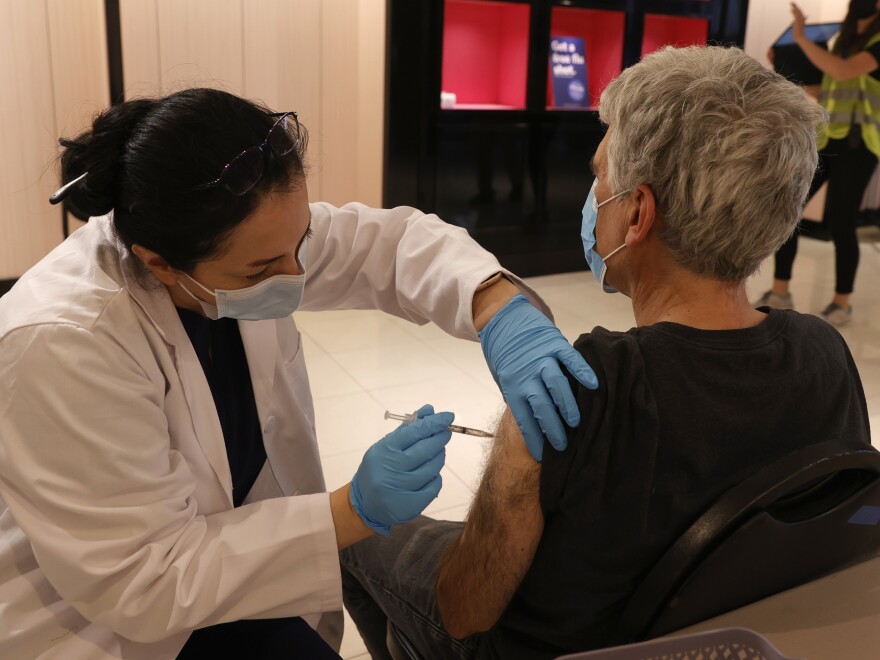Updated November 19, 2021 at 6:15 PM ET
CDC Director Rochelle Walensky is giving the green light to COVID-19 vaccine boosters for all adults.
The announcement came just hours after a vaccine advisory committee voted unanimously to expand Moderna and Pfizer-BioNTech vaccine boosters to everyone 18 and older.
The experts met Friday afternoon following the Food and Drug Administration's decision to authorize the boosters for all adults.
The Advisory Committee on Immunization Practices voted in support of a change to COVID-19 vaccination policy that says people 50 and older should get a booster if they had a primary immunization with an mRNA vaccine (Moderna or Pfizer) at least six months before. The recommendation also applies to people 18 and older in long-term care settings.
For people at least 18 and younger than 50, the panel supported a policy that recommends they receive a booster based on their individual risks and benefits.
An analysis from a CDC working group concluded that the balance of benefits and risks for a booster is clearest for older people. The group also noted that the latest data on myocarditis, an inflammation of the heart seen rarely after vaccination but most often in young men, is "reassuring to date."
Copyright 2021 NPR. To see more, visit https://www.npr.org.




